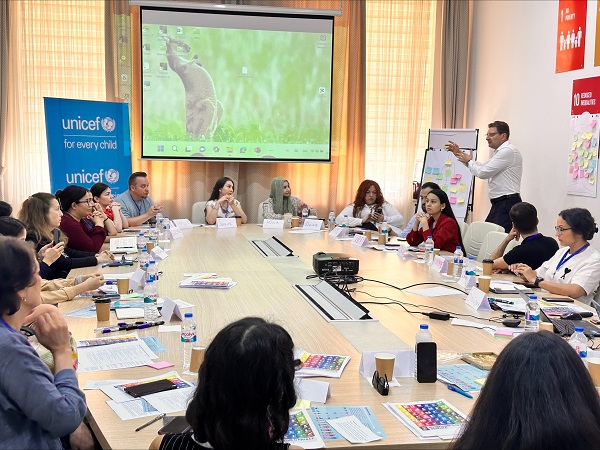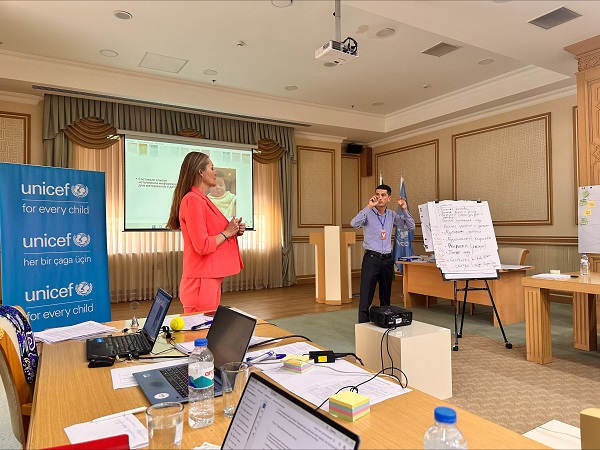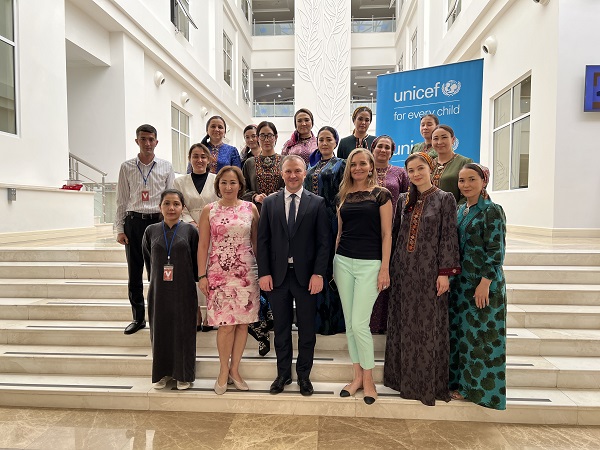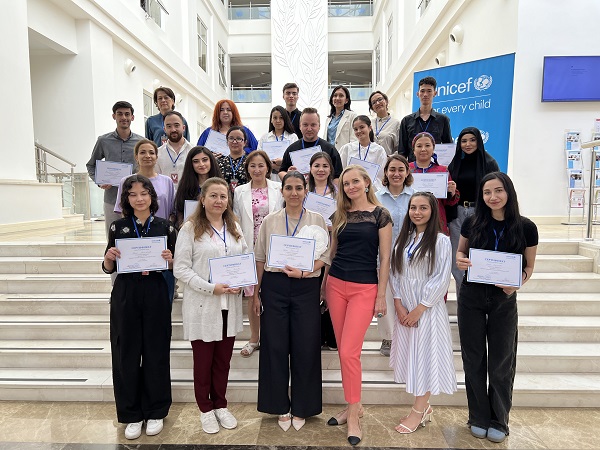From 12 to 17 May, UNICEF Turkmenistan hosted an intensive week-long training titled “Ethical Reporting for and about Children”. Journalists from state and private media outlets, digital content creators, and social media influencers came together at the UN Building in Ashgabat to learn how ethical journalism can protect and promote child rights—and build public trust in media content on children.
The training was conducted by UNICEF in collaboration with Legal Media Center, a Kazakhstan-based NGO with deep experience in media ethics and legal standards. Over six days, participants went far beyond theory. They dove into practical topics like consent, privacy, the dangers of stereotyping, and how to cover stories involving children with sensitivity and respect. They examined international standards and national legal protections, discussed the editorial responsibility of media organizations, and considered the power and pitfalls of digital storytelling—including the use of artificial intelligence.
Sessions were carefully tailored to meet the needs of both traditional media professionals and social media influencers, recognizing their growing role in shaping public narratives and reaching younger audiences.
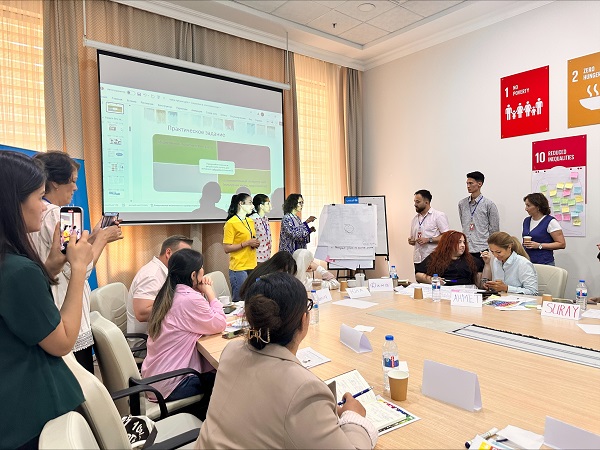
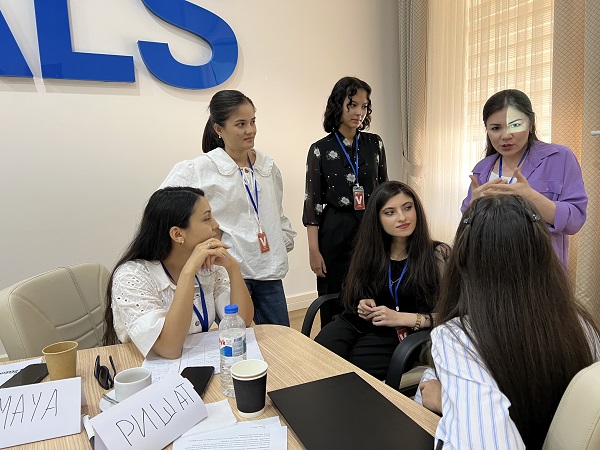
One key message echoed throughout the week: children are not just subjects – they are right-holders. Journalists have a responsibility to protect their dignity, including when reporting on vulnerable groups such as children with disabilities or those affected by trauma.
Participants engaged in practical exercises, from role-plays to drafting newsroom guidelines. In one engaging mock talk show, they practiced interviewing techniques that respect children’s voices and agency. Others presented creative story concepts focused on supporting parenting, managing cyberbullying, and safe digital environments for children.
The media ethics training also reached the next generation of journalists. Two dedicated seminars were conducted in English language for university students from the Institute of International Relations, the International University for Humanities and Development, and Magtymguly Turkmen State University. These sessions helped plant the seeds of ethical reporting values early in their careers.
By the end of the week, it wasn’t just about better reporting—it was about building a media culture in Turkmenistan that champions children’s rights, empowers young voices, and tells stories that heal, inspire, and protect.
As Aygul, one of the participants, mentioned during the training: “We now understand that how we tell a story about a child can shape how society sees them—and how they see themselves.” /// nCa, 20 May 2025 (in cooperation with UNICEF Turkmenistan)
